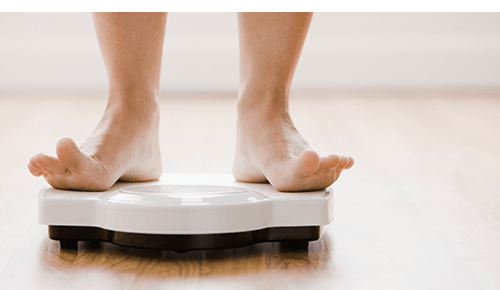Don’t stop at quitting — follow-up strategies can help you continue to improve your health.
If you’re reading this, you are either thinking about quitting or have quit smoking: Congrats! Your body will soon start to experience positive changes.
Kim Hehman, director of pulmonary and cancer services at OhioHealth Doctors Hospital, offers ways you can continue to improve your health after or during the process of quitting tobacco.
1. Find activities that involve deep breathing and relaxation.
Hehman recommends yoga, walking, meditation — anything that keeps an ex-smoker busy and active. “Deep breathing and relaxation attempts, although not physical exercise, are often very helpful during quitting. I often encourage people to find something they enjoy and will be more inclined to stick with,” she says.
Depending on how long a person has smoked, vigorous activity can be difficult, but often those who quit report they can run longer and farther without becoming winded as quickly, she says. “One of our program graduates even set a personal best during a half-marathon after quitting. Circulation improves after only a few weeks, and lung capacity can improve within a few months.
2. Set a “red flag” warning.
Hehman says a common concern of those who attend the OhioHealth tobacco cessation programs is that of weight gain. The average weight gain for those quitting smoking is around 5 to 10 pounds; however, the health benefits of quitting far exceed the risks of a few additional pounds.
“Balance is very key when trying to set yourself up for success— tolerating a few pounds here and there is encouraged. But I always suggest setting a weight amount that will be the ‘red flag’ warning that indulging needs to be monitored,” Hehman says.
Quitting smoking is an overwhelming process so picking that time to diet or start a new exercise regimen should be realistic, she adds.
3. Plan ahead for snacks and your routine.
Hehman suggests packing healthy snacks and meals to help you be the most successful — carrot and celery sticks, sugar-free candies and mints. “Your sense of taste and smell will improve, which also makes it easier to indulge in more food, so be mindful of what you are eating and its portions,” she says.
In addition to planning your food, you should plan to change your routine behaviors. “As part of a quit plan, changing routine of the times when you used to smoke and replacing the behavior with walks or other physical activities can help ex-smokers be successful.”
4. Give the house and car a deep clean.
By quitting smoking, you’re giving your body a fresh start. Consider giving your home and car a fresh start, too.
“Having the carpet cleaned and washing the curtains in your home can help remove smells which can often be a trigger,” Hehman says. The car can be a trigger as well. “Often, participants have their car detailed after they quit as an incentive to keep it clean and continue to not smoke in their car.”
5. Keep an eye on blood pressure medications.
“There is a timeline of all the positive changes that occur after quitting smoking: Sense of smell and taste become much sharper, energy levels will improve after the initial withdrawal symptoms subside, blood pressure and heart rates often return to normal,” she says.
During these positive changes, it’s important to note that if you take any blood pressure medications, your physician may want to monitor you, Hehman says. “A lot of ex-smokers either reduce their dosage or discontinue these medications after staying successfully quit.”
6. Reward yourself.
It can be a reward small or large. Either way, you owe it to yourself.
“Quitting smoking is something that can be incredibly challenging, and it should be rewarded and recognized,” Hehman says. “It can be something as simple as allowing yourself extra time watching Netflix, pedicures or manicures, extra dessert every Sunday night you remain quit. Some even calculate their savings from not smoking and plan a big vacation.”
As you plan your goals and rewards, the important thing to remember is setting short-term goals (one day, one week, one month) in addition to long-term goals.
To join a six-week OhioHealth class taught by certified tobacco treatment specialists, visit our website. Find updated classes quarterly under the health and wellness section. You can also call 1-800-752-9119 to request additional information.









